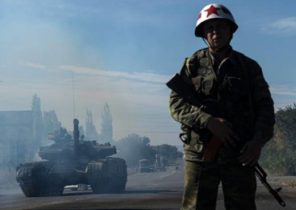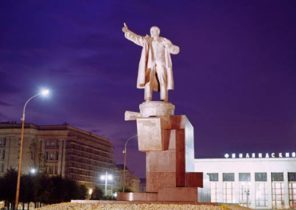Russia is not the only country that puts the interests of internal policy above global cooperation in the fight against coronavirus.
All we’re waiting for a vaccine against the coronavirus, but when earlier this week, Russia announced that it will be the first country in the world to approve such a vaccine, nobody is happy. The researchers noted that clinical trials of the Russian vaccine was not properly conducted and that its testing was attended by less than 100 people.
Anthony Fauci (Anthony Fauci), Director of the us National Institute of allergic and infectious diseases, said he “seriously doubts” the effectiveness of the Russian vaccine. Russian vaccine is an obvious and potentially dangerous publicity stunt. “This is ridiculous, — said the head of the Russian Association of clinical research in an interview with the journal Science. — I experienced a feeling of shame for our country.”
This mysterious Russian vaccine may be harmless. The underlying technology was used to create some other approved vaccines, and Russia has said that until all the tests to it will only health workers and representatives of some other groups.
Meanwhile, China quietly is also allowed to use the vaccine, which has not yet been completed in its armed forces. But she is unlikely to be effective — most vaccines are ineffective. Most likely, Russia wanted to give the vaccine, which is still in the testing stage, for completely ready to use the vaccine to cause the Russians a small surge of nationalist dopamine. (The vaccine is called “Satellite V” — an allusion to the fact that it is a kind of successor to the Soviet missiles which once surpassed the United States in the space race.)
It looks ridiculous and even comical. Vladimir Putin said that the vaccine is safe and that even his own daughter did it, as if the President’s family is somehow an indicator. But, before we begin to criticize this dysfunctional state, and to ridicule in the scientific sense of an ignorant leader, let us ask ourselves: is his statement any different from statements of President Donald trump, who called the measures taken by the U.S. to combat the spread of covid-19, the best in the world? Or from the persistent statements of the British government on the number of tests conducted? All of these statements have something in common: the state fails, and then tells the public that it succeeded.
Last week, the world health organization has tried to warn against “vaccine nationalism,” stressing that a truly effective vaccine that will help end the pandemic, can only be created in conditions of international cooperation. As in the case with the struggle for personal protective equipment and reagents needed to conduct tests, when the government took the decision to suspend their exports, and the United States, according to some, even tried to intercept their deliveries to international ports, the huge demand for the vaccine may result in another bitter struggle over limited resources — only this time, nobody yet knows what kind of vaccines will be truly effective and what they are trying to get.
Meanwhile, while some of the projects for development of vaccines promise to make the results of their work as possible cheap and accessible, other projects look scary marketsaround. A few weeks ago I talked to one financial analyst, who with undisguised pleasure talked about the fact that the American vaccine-candidate — mRNA vaccine company Moderna — may cost in the world market more than 70 dollars per dose — a price will inevitably leave the poorest countries behind.
In response, the who has asked countries to join the programme Access to Covid-19 Tools (“Accelerator access to tools against covid-19”), part of which is devoted to funding research in the public domain, and the procurement of vaccines in order to ensure their equitable distribution. This project recently received $ 8 billion from a group of EU countries, from the bill gates Foundation and the charitable Foundation Wellcome Trust. This is quite an encouraging amount, however, most likely, it will fade in comparison with those flows of money that individual countries will spend to create a vaccine on their own. Over the past month, the United States has signed or started talks on the issue of contracts for the supply of potential vaccines with companies such as Pfizer ($2 billion), GlaxoSmithKline ($2.1 billion), Moderna ($1.5 billion) and AstraZeneca ($1 billion).The United Kingdom has already signed six contracts in total, 340 million doses, although information about the price yet.
To call it a “vaccine nationalism” is meaningless, because each stage of the coronavirus crisis was marked by a surge of nationalism. At each stage of this crisis, countries that actively supported the idea of an interconnected world, started to disown her and to rush in anger, realizing that the current system no longer meets their interests. Recall, for example, a sudden realization by the President trump the fact that, despite his enormous wealth, the United States will no longer produce the drug (as well as protective suits, masks, and ventilators).
All this is part of a larger trend. International institutions such as who, which warned about potential pandemics and created initiatives of vaccine development, distribution, and preparedness in public health, have not been taken seriously and had not received adequate funding for many years. The basics you need for a truly coordinated international response to the current crisis, it was necessary to lay a long time ago.
One of the most frightening moments in the early stages of the current pandemic was the realization that the richest and seemingly the most powerful country in the world made mistakes in dealing with its spread — due to the negligence of the political leadership and long-term consequences of the neglect of their national institutions. Meanwhile smaller States such as Vietnam and South Korea, worked brilliantly. However, because we have a tendency to obsessively compare the results in the early stages this was not a game in which there can be only one winner. It could be in New Zealand.
If the vaccine really will put an end to this crisis, is truly a terrible tragedy if those countries which to date have failed, suddenly able to turn the situation into a game in which the richest nation will purchase most vaccines, leaving everyone else behind.






